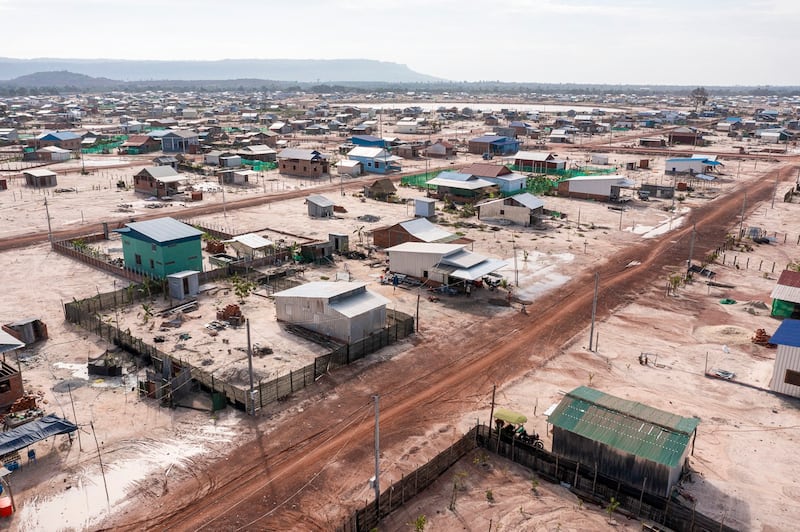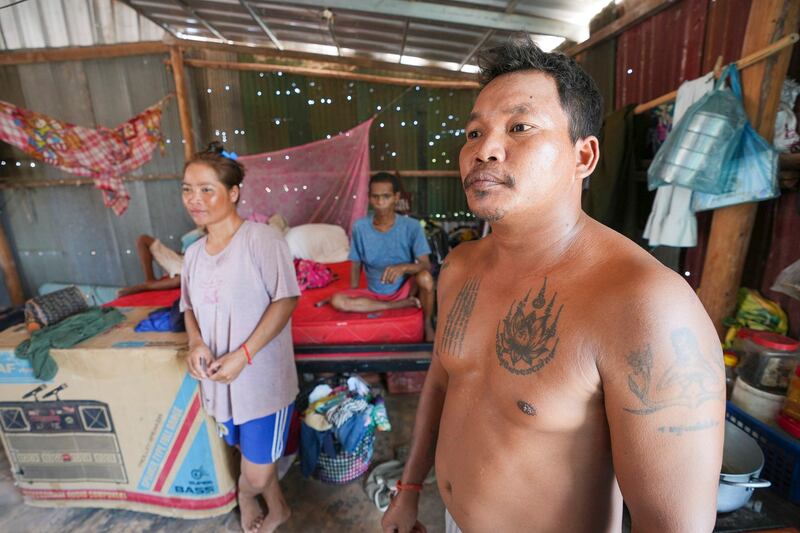A UNESCO committee has recommended that an inspection team visit the disputed Angkor area in Cambodia’s Siem Reap province, where the forcible removal of thousands of families has drawn allegations of human rights abuses.
The decision on Wednesday from the United Nation’s cultural agency at its annual meeting in New Delhi included a statement that the World Heritage Committee was concerned “about third-party reports concerning possible forced population displacements.”
A report from Amnesty International last year found that Cambodian authorities have evicted 40,000 people from the famed Angkor temple complex since 2022.
The government has cited the need to protect the sprawling 400 square km (155 square mile) complex, which includes Angkor Wat and about 70 other ancient temples and buildings.

When Angkor was named a World Heritage site in 1992, UNESCO stated that having people live in some core areas of Angkor “was inappropriate to the preservation and presentation of major archaeological sites.”
But a UNESCO report at the time found that some people living in traditional villages had the right to stay in the Angkor complex, while new settlers did not.
Since then, UNESCO’s recommendations and Cambodia’s national law haven’t made clear which settlements were traditional villages, according to Amnesty’s November 2023 report.
The government began moving people into resettlement sites elsewhere in the province in 2022. Many of the residents were persuaded to leave their homes in exchange for plots of land, a two-month food supply and building materials.
But at the main resettlement site, known as Run Ta Ek, Amnesty researchers found families living under tarps and lacking access to adequate sanitation. People complained of the lack of employment opportunities at the site, which is a 45-minute drive from Siem Reap town.
Amnesty also alleged that some residents had been coerced into moving by threats.
This week, one resident told Radio Free Asia that people living in Run Ta Ek continue to face financial problems and recently had to deal with rainy season flooding at the resettlement site.
“People are closing businesses because they are losing money,” he said.
‘Woefully deficient’
Last week, Amnesty urged the World Heritage Committee to call on Cambodia "to make an explicit commitment" not to engage in further forced evictions from Angkor and "to put in place all necessary corrective measures to ensure full respect of human rights for the communities affected."
Amnesty’s July 19 statement was issued ahead of the World Heritage Committee’s 10-day meeting, which ends July 31.
“Member states at the World Heritage Committee session must unequivocally condemn the human rights violations being committed by the Cambodian government at Angkor,” said Kate Schuetze, Amnesty International’s acting deputy regional director for research.

Wednesday’s decision to send an inspection team was criticized by Save Cambodia, a human rights group based in the United States.
The monitoring mission is “woefully deficient” and “fails to address the core problem which is that the evictions were prohibited by the agreement” between UNESCO and the Cambodian government, the group said.
Ing Kongchit, a coordinator for Cambodian human rights group Licadho, told RFA that he hopes the inspection team will eventually intervene with the government so that people’s human rights are respected.
“I want the team to come and inspect the site to learn the challenges that people are facing,” he said. “People should be allowed to make their own decision without being forced.”
RFA was unable to contact government spokesman Pen Bona for comment on Friday.
Translated by Yun Samean. Edited by Matt Reed.

